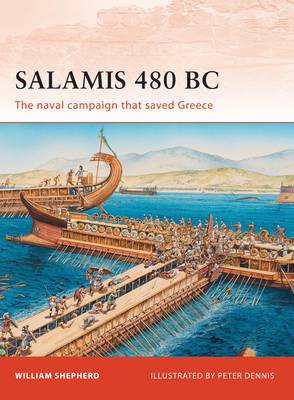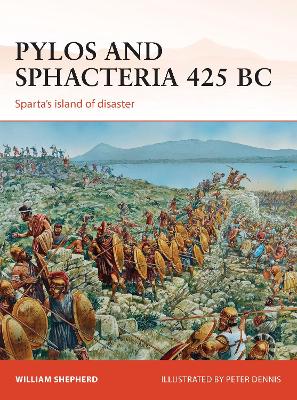Campaign
3 primary works
Book 222
In 480 BC, the Greek and Persian fleets met in a battle in the strait between Attica and the island of Salamis. Although outnumbered, the Greeks delivered a crushing victory that ended the Persian threat to Greece. This book draws on the findings of archaeological, technological and naval research, as well as on original historical sources to vividly recreate one of the most important naval campaigns in world history.
Book 239
Plataea was one of the biggest and most important land battles of pre-20th century history. Close to 100,000 hoplite and light-armed Greeks took on an even larger barbarian army that included elite Asian cavalry and infantry, and troops from as far away as India, with thousands of Greek hoplites and cavalry also fighting on the Persian side. At points in the several days of combat, the Persians with their greater mobility and more fluid, missile tactics came close to breaking the Greek defensive line and succeeded in cutting off their supplies. But, in a fatal gamble when he nearly had the battle won, their general Mardonius committed the cream of his infantry to close-quarters combat with the Spartans and their Peloponnesian allies. The detailed reconstruction of this complex battle draws on recent studies of early 5th-century hoplite warfare and a fresh reading of the ancient textual sources, predominantly Herodotus, and close inspection of the battlefield.
Book 261
During the Peloponnesian War the Athenians occupied the promontory of Pylos to counter Sparta’s repeated invasions of Attica. Over two days of fighting the small garrison beat off the Spartan army and the returning Athenian fleet won a crushing victory in the nearby waters, stranding a contingent of elite Spartan hoplites on the island of Sphacteria. With the campaigning season drawing to a close the Athenians mounted an attack on the island using an unconventional amphibious night assault they overran the Spartan outpost covering the beaches and light-armed missile troops landed at daybreak in overwhelming numbers. The Spartans were slowly driven back to their stronghold, losing men steadily as they were prevented from engaging in the hand-to-hand fighting at which they excelled. With their commander dead and his deputy incapacitated by wounds, the 292 survivors surrendered. This was a surprising blow to the Spartans’ glorious reputation, and these prestigious prisoners-of-war served the Athenians very well as bargaining counters in the diplomatic activity that punctuated the hostilities that continued for the next four years.


